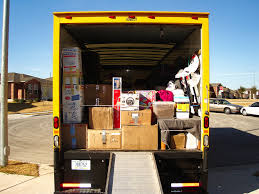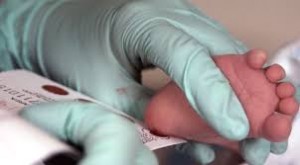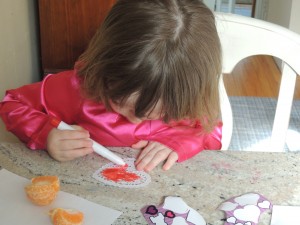This post is the first of three parents’ perspectives, as a part of Down Syndrome Awareness Month.
The recent breakthrough involving scientists figuring out how to silence or shut down the extra copy of the twenty-first chromosome that results in trisomy-21, or Down syndrome, has led to people expressing strong feelings on both sides of the question: should we try to cure Down syndrome?
As a parent of a child with Down syndrome, I have my own feelings about both potential “gene therapy” and drug therapies that may soon be on the market to possibly improve cognitive function of people with Down syndrome. Would I do it for my child?
Instead of answering that question, I think it’s important to examine what is at the root of that question: would I change my child if I could?
I believe that we all have intrinsic value merely by virtue of being members of the human family, without qualification. We are all connected, and we all have strengths and limitations, gifts and frailties. And if we live long enough, the vast majority of us will become disabled at some point, through accident, illness, or aging.
What bothers me about the question of whether I would change the fact that my son has Down syndrome that it’s just another example of how we value people based on arbitrary standards, like intelligence and achievement and performance. Those who are smart, who make a lot of money, who contribute to society in material ways – those are the people we as a society hold in high regard. People who have lower intelligence, less than optimal abilities, who are dependent, are liabilities, and they are expendable. And since we consider ourselves a civilized society, we try to improve and fix them. It’s all cloaked in “wanting what’s best” for our kids. Wouldn’t you like to make your child’s life better? Wouldn’t you like to make your child’s life easier? Wouldn’t you like to remove or lessen some of the struggles and hurdles they will face? Wouldn’t any good, loving parent want those things for their child?
All of this assumes that “treating” Down syndrome – by way of gene therapy, drug therapy, physical therapy, speech therapy, or whatnot – actually does improve – well, to put it bluntly, people with Down syndrome. Whether it actually does remains an open question that really cannot be answered since it is impossible to take a child and subject him or her to the various therapies available and compare the “results” to the very same child not subjected to those therapies. There is such a range of manifestation of Down syndrome, and nobody who has their child in various therapies can truly claim that their child’s abilities are improved by therapy because they’ve not observed their child at the same age and stage without therapy; by the same token, those parents whose children undergo little or no interventive therapy can’t say for sure if their child might be different with therapy since they haven’t observed their child at the same age and stage with therapy. This has always fascinated and frustrated me – how many parents insist that therapy has made a huge difference for their child. How can they really know? What is true is that we parents of children with disabilities are very much subjected to judgment and societal expectations that we will take measures to improve our children, because it’s irresponsible not to do so – not to take advantage of all the technological advances that have been made.
If what we are talking about it quality of life, then we have to ask ourselves: do smart and able equal happy and successful? Is an easier life a better life? Is a life with fewer struggles a better life? These are philosophical questions to which there are no simple answers.
One of the things I heard most often in the weeks and months after Finn was born was “Didn’t you do the testing?” People seemed genuinely surprised that in this day and age when it’s common practice to find out everything you possibly can about your fetus before it’s born, that I had chosen not to. People seemed especially surprised given the fact that I was 40 when I got pregnant with Finn – didn’t I realize my risk factors? And the fact that I chose home birth – extremely low tech and low intervention by its very nature – many people for some reason seemed to think that where Finn was born had anything to do with the condition he was born with – as if there might have been a different outcome had he been born in a hospital. When I found myself pregnant again at the age of 44, I incited more surprise, and perhaps even disdain, when I again declined prenatal testing and planned for another home birth. It was reckless, irresponsible not to take advantage of everything modern technology has to offer.
Only, I didn’t see it that way. It’s not that I was choosing the bliss of ignorance, necessarily, but how I chose to approach my pregnancy with Scarlett (Finn’s younger sister) had very much to do with my feelings about Finn – about his birth, his diagnosis and how that was delivered to us, and his very personhood. Was I truly okay with it? I did not feel that knowing Scarlett’s chromosomal makeup before she was born would benefit her or me – I was only concerned that she was physically healthy enough to be born safely at home. My midwife supported my choice not to have any prenatal screenings beyond a 20-week ultrasound, but I think even she worried about the odds of my baby having a genetic anomaly based on my advanced age and the fact that I’d already had a baby with Down syndrome. After Scarlett slipped out into the world, and I pulled her up and held her in my arms, I remember my midwife taking one of Scarlett’s tiny hands and spreading her fingers out, examining her palm and showing it to me. “See?” she said, showing me the typical double crease, in contrast to Finn’s telltale single crease that indicated Down syndrome.
“I don’t care, I don’t care,” I said. “I just care that I have my baby here.” I didn’t want those first few precious moments to be spent worrying or feeling relieved about her chromosomal makeup. I wanted to just know her as my baby – not my healthy baby, or my defective baby – just my baby. Exactly how my first moments and hours with Finn were spent.
Back to the question of whether I would undertake gene therapy or drug therapy for Finn. In all honesty, I think it’s still going to be quite a while before either of those therapies are so readily available to the general public that I will even be faced with a decision about that. In the meantime, I want to spend my time and energy as Finn’s mom advocating not for him to change in order to fit into the world better, but for the world to be more accepting and accommodating of Finn and of diversity. I want to instill in Finn a strong sense of himself – a belief in himself just as he is. And if and when the time comes for a decision to be made about gene therapy or drug therapy, I would like to think that Finn himself would be very much a part of that decision process.
Lisa is the mom to seven kids, ranging in age from teen to toddler. She lives in Southern California and writes about parenting, Down syndrome, and life at Life As I Know It (http://lisamorguess.com).











